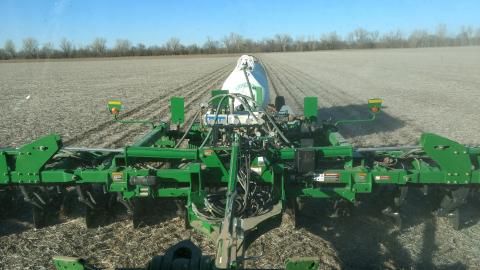Reduce the Cost of Planting Roundup Ready Alfalfa
March 23, 2017
Roundup Ready alfalfa seed can be expensive, but establishing a new field may not cost as much as you think if you follow these recommendations.
Consider Planting Grass-Alfalfa Mixtures this Year
March 22, 2017
Are you planting a new hay field this year? Instead of automatically planting pure alfalfa, consider mixing grass into your planting. A grass-alfalfa mixture that includes orchardgrass, smooth brome, festulolium, or other grasses offers several advantages and may be the best choice for your operation.
Checking Alfalfa For Winter Injury
March 10, 2017
Alfalfa had started to green up and grow in many areas prior to this cold spell. When growth begins again, stands need to be evaluated soon.
Cutting Costs Without Hurting Yields? Check Fertilizer N Rates in Corn after Alfalfa
February 22, 2017
With tight crop margins for the 2017 growing season, many farmers are looking for ways to cut input costs without hurting yields. One way to do this is by giving the appropriate nitrogen credit when calculating how much N to apply to corn grown after a prior alfalfa crop.
Dormant Spraying Alfalfa Weeds
February 17, 2017
Starting your weed control in dormant alfalfa can help ensure that weeds don't lower yields, reduce quality and slow hay drydown in that first cutting.
Be Alert to Risk of Alfalfa Winter Injury
February 17, 2017
WIth warm temperatures and intermittent early growth, alfalfa may be using up vital reserves needed for its regular growing season. Growers are urged to check their fields and make any necessary adjustments early.
High Quality Hay Still Brings Top Dollar
November 11, 2016
If you're sitting on some high-quality hay and planning to feed your livestock, consider whether the market adage to "Sell high, buy low" might offer some sage advise for the hay market too.
Weed Control Options in Seedling Alfalfa
September 21, 2016
Late summer plantings of alfalfa tend to have fewer weeds than spring plantings, but this year, fall weeds may be a problem in some fields.
